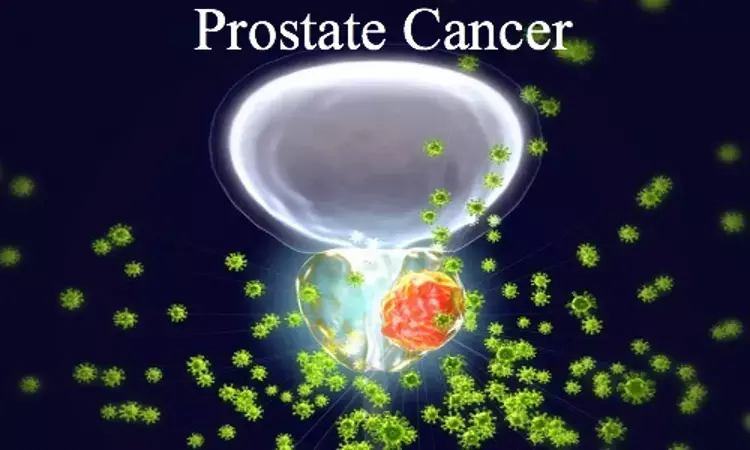- Home
- Medical news & Guidelines
- Anesthesiology
- Cardiology and CTVS
- Critical Care
- Dentistry
- Dermatology
- Diabetes and Endocrinology
- ENT
- Gastroenterology
- Medicine
- Nephrology
- Neurology
- Obstretics-Gynaecology
- Oncology
- Ophthalmology
- Orthopaedics
- Pediatrics-Neonatology
- Psychiatry
- Pulmonology
- Radiology
- Surgery
- Urology
- Laboratory Medicine
- Diet
- Nursing
- Paramedical
- Physiotherapy
- Health news
- Fact Check
- Bone Health Fact Check
- Brain Health Fact Check
- Cancer Related Fact Check
- Child Care Fact Check
- Dental and oral health fact check
- Diabetes and metabolic health fact check
- Diet and Nutrition Fact Check
- Eye and ENT Care Fact Check
- Fitness fact check
- Gut health fact check
- Heart health fact check
- Kidney health fact check
- Medical education fact check
- Men's health fact check
- Respiratory fact check
- Skin and hair care fact check
- Vaccine and Immunization fact check
- Women's health fact check
- AYUSH
- State News
- Andaman and Nicobar Islands
- Andhra Pradesh
- Arunachal Pradesh
- Assam
- Bihar
- Chandigarh
- Chattisgarh
- Dadra and Nagar Haveli
- Daman and Diu
- Delhi
- Goa
- Gujarat
- Haryana
- Himachal Pradesh
- Jammu & Kashmir
- Jharkhand
- Karnataka
- Kerala
- Ladakh
- Lakshadweep
- Madhya Pradesh
- Maharashtra
- Manipur
- Meghalaya
- Mizoram
- Nagaland
- Odisha
- Puducherry
- Punjab
- Rajasthan
- Sikkim
- Tamil Nadu
- Telangana
- Tripura
- Uttar Pradesh
- Uttrakhand
- West Bengal
- Medical Education
- Industry
Use of abiraterone or enzalutamide may increase risk of metabolic and cardiac adverse events in prostate cancer

Older men with advanced prostate cancer receiving abiraterone or enzalutamide have increased risks for metabolic and cardiovascular adverse events, a new study finds. The study was conducted by Lillian Y. Lai, et al. of the University of Michigan reported in the Journal of the National Cancer Institute.
Abiraterone and enzalutamide are the most common oral agents for the treatment of men with advanced prostate cancer. This study examined their safety profiles, as association between the use of abiraterone or enzalutamide and the risk of metabolic or cardiovascular adverse events while on treatment.
The study observed that "With continued expansion of the indications for abiraterone and enzalutamide to earlier stages of the disease continuum, increasing numbers of men will be receiving these therapies for longer periods of time,"
Also they noted "This will potentially amplify the scope of men affected and increase the magnitude of the risks of adverse events, making careful attention to management of these issues crucial."
Men with advanced prostate cancer and their use of abiraterone or enzalutamide were identified in a 20% sample of the 2010-2017 national Medicare claims. Among 56,230 patients with advanced prostate cancer receiving Medicare (mean age 76-78 years), 2736 were treated with abiraterone, an androgen synthesis inhibitor, and 2466 with enzalutamide, a nonsteroidal androgen receptor antagonist, along with androgen deprivation therapy. The primary composite outcome was a major metabolic or cardiovascular adverse event, defined as an emergency room visit or hospitalization associated with diabetes, hypertension, or cardiovascular disease while on treatment with abiraterone or enzalutamide. The secondary endpoint was a minor metabolic or cardiovascular adverse event resulting in an outpatient visit while on treatment with these drugs.
Abiraterone treatment was significantly associated with a 77% increased risk of a major composite adverse event and a 24% increased risk of a minor composite adverse event, compared with androgen deprivation therapy alone, Dr Lai's team reported. By component, abiraterone was significantly associated with an 84% and 37% increased risk for a major or minor diabetic event, respectively, and a 91% and 75% increased risk for a major or minor cardiovascular event, respectively. The investigators noted that abiraterone is taken with a glucocorticoid, which in itself has metabolic and cardiovascular consequences.
Enzalutamide treatment was significantly associated with a 22% increased risk of a major composite adverse event but not a minor composite adverse event, according to the investigators. Abiraterone and enzalutamide did not increase the risk of hypertensive adverse events.
"As hypothesized, men receiving abiraterone with androgen deprivation were at a significantly increased risk of metabolic and cardiovascular adverse events necessitating emergency room visits and hospitalizations compared with those only on androgen deprivation," the authors wrote. "Though also statistically significant, the evidence supporting the risks of enzalutamide was weaker, with a smaller magnitude of effect size compared with that associated with abiraterone use."
The study concluded that Careful monitoring and management of men on abiraterone or enzalutamide through team-based approaches are critical
Reference
Lai LY, Oerline MK, Caram MEV, Tsao PA, Kaufman SR, Hollenbeck BK, Shahinian VB. Risk of metabolic and cardiovascular adverse events with abiraterone or enzalutamide among men with advanced prostate cancer. J Natl Cancer Inst. Published online April 13, 2022. doi:10.1093/jnci/djac081
MBBS, MS
Dr Nisanth Puliyath (MBBS, MS) has completed his MBBS from Calicut Medical College and MS General Surgery from AIIMS Rishikesh. He has published several peer-reviewed papers in both national and international journals. He has presented posters and papers at various national conferences and won prizes for the same. He is a surgeon with a keen interest in the latest literature and technical advances in the fields of Surgery and Urology. He can be contacted at editorial@medicaldialogues.in.
Dr Kamal Kant Kohli-MBBS, DTCD- a chest specialist with more than 30 years of practice and a flair for writing clinical articles, Dr Kamal Kant Kohli joined Medical Dialogues as a Chief Editor of Medical News. Besides writing articles, as an editor, he proofreads and verifies all the medical content published on Medical Dialogues including those coming from journals, studies,medical conferences,guidelines etc. Email: drkohli@medicaldialogues.in. Contact no. 011-43720751


